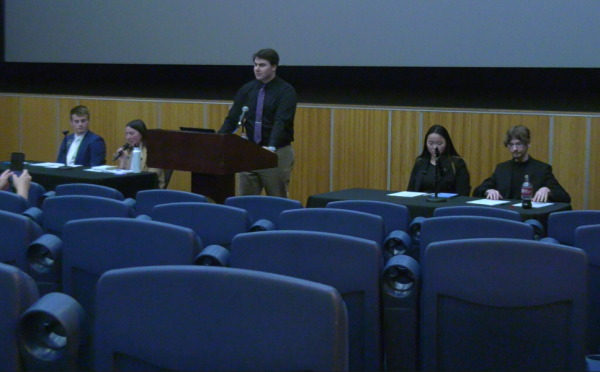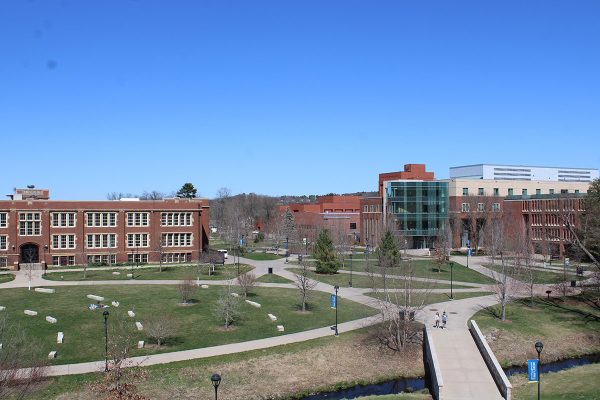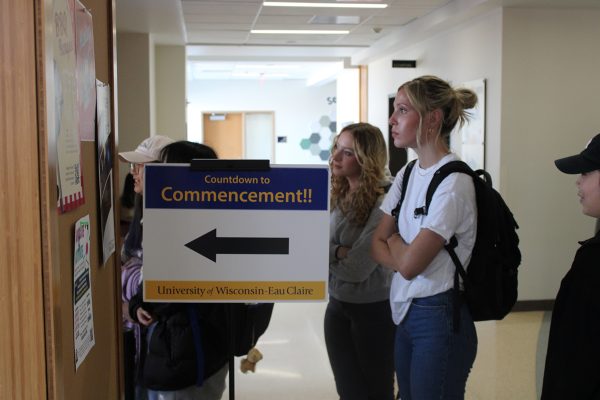High transit usage leads to higher out of pocket costs
More buses, relief bus included
March 3, 2015
Students will begin to pay capital costs for buses driving on the Number Nine route after Student Senate’s overwhelming support of next year’s non-allocable fees budget Monday night.
According to the transit budget, next year’s proposed transit rate of an annual $42 fee per student comes from declining enrollment rates coupled with $15,000 in additional maintenance and repair (capital) costs. Despite this, a $387,000 transit expenditure still means an overall $8,000 cheaper price for next year.
The inclusion of capital costs was the city’s response to budget negotiations, Christian Paese, finance director, said. Previous agreements between the two had not factored capital costs into estimates, he said.
With an average 30,000 rides per month, which Paese said amounts to one-third of Eau Claire Transit’s ridership, quicker wear and tear of Number Nine buses led to the city to ask for a larger contract.
“They’re servicing Route Nine in excess,” Paese said, “they need money for repairs, on top of Federal funding which isn’t (available) anymore.”
These expenses include the familiar two Number Nine routes, but rides between the Priory and the recently relocated Children’s Center as well. Kim O’Kelley, who presented the budget to the senate Monday night, said many people depend on the Priory shuttle.
“Students, families and employees use this route,” O’Kelley said. “This is a straightforward way.”
Paese noted expenses also include an emergency bus, which would provide relief for students and driver on the harshest winter days, where ridership tends to be higher.
“No more kids standing at the bus stop,” he said, “seeing a full bus drive by.”
The university is one year into its five-year contract with Eau Claire Transit. Between now and the contract’s expiration, Paese said he doesn’t foresee Eau Claire ending the contract any time soon, especially not after winters like last year.
“It’s a valuable service,” Paese said. “It’s obvious these things are necessary for students.”










